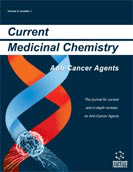Abstract
Environmental conditions such as temperature, radiation, hypoxia, nutrients and drugs stimulate the adaptive sensory and signaling machinery of the cell. This stress response may influence cell cycle regulation, cellular differentiation, oncogenic transformation, cell survival and apoptosis. The impact of the cytoprotective reprogramming in cancer pharmacology is presented by the recent extensive literature regarding the interplay between stress tolerance and anticancer drug effectiveness and resistance, relying on the dominating intrinsic pathways, which are simultaneously activated and regulate the death process either positively or negatively. This review presents the data that argue for the emergence of either common or specific mechanisms depending on the type, duration and severity of stress in all eukaryotic organisms from yeast to mammals. The understanding of the complexity and the balance between noxious and protective signal transduction pathways would contribute to a more explicit evaluation of the current therapeutic regiments and to the development of new leads targeting malignancy.
Keywords: cellular stress, cellular differentiation, oncogenic transformation, anticancer mechanism
 1
1

















